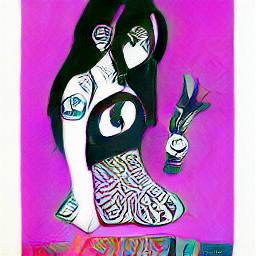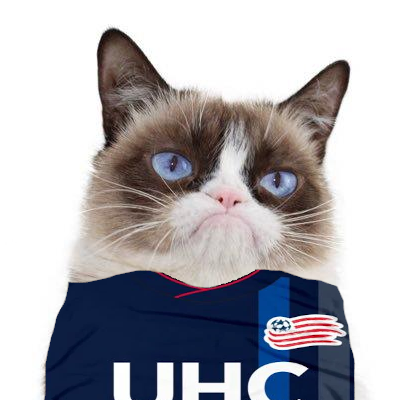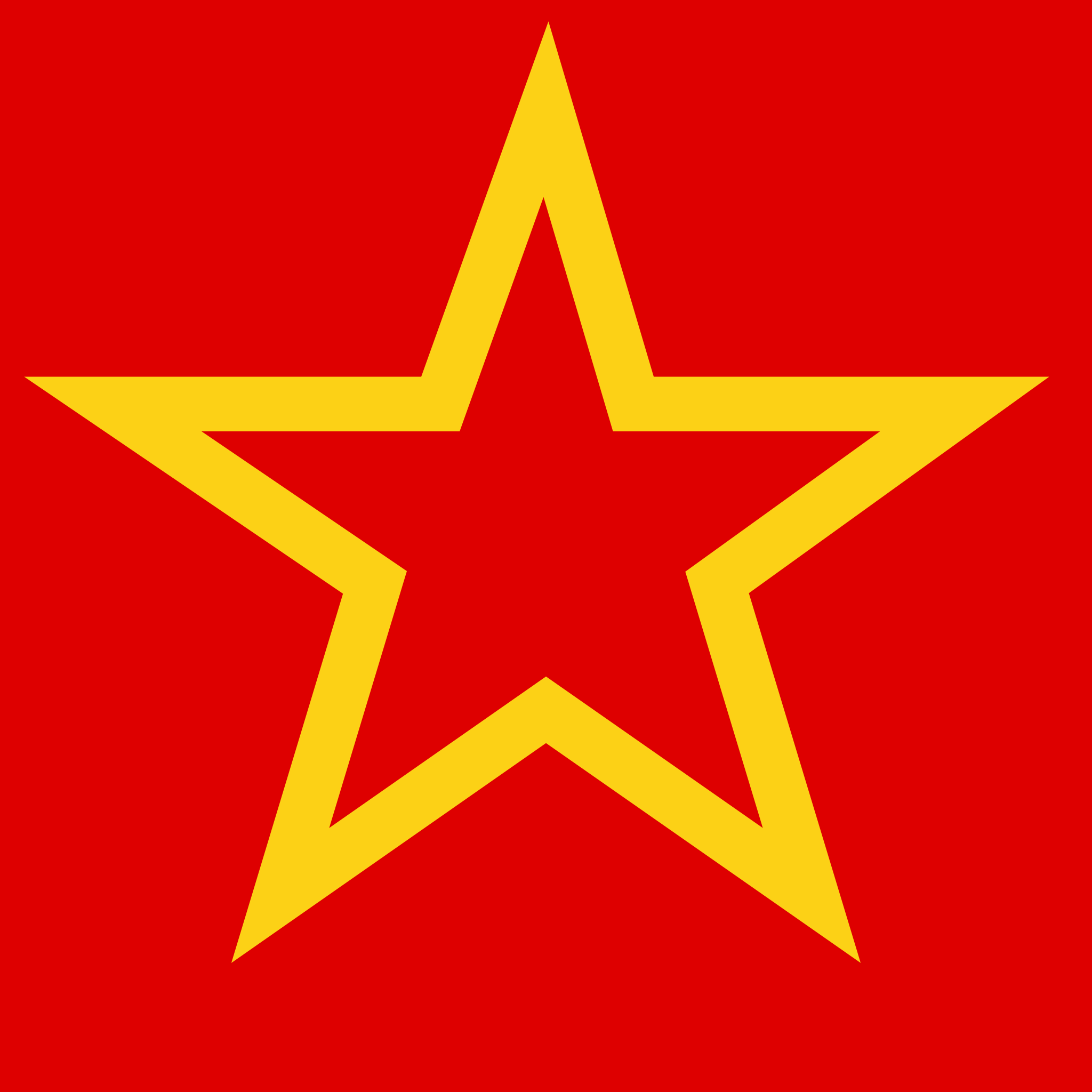Like my base assumption is that she's wrong. If you think the PMC is an actual class then you're also only one step away from 🤡
https://twitter.com/jacob__posts/status/1367492298783744001?s=19
I maintain my position that the PMC is not a real class distinct from the proletariat or the bourgeoise, but it is a real phenomenon of class collaboration among various subclasses of the main two.
I don't think it works as coherent class collaboration either. There are tendencies and heavy similarities in affect and cultural aesthetics and speech patterns, but it is still not a matter of class collaboration for that to be the case. There is no serious methodology to induct nurses, for example, into the ranks of the managerial positions in the sense of managing firing and hiring of workers, or any consistent alliance between them and the rest of the richer professionals who are not proletariat (nurses vary heavily in political, local union activity, and voting habits, despite having a shared professional background with liberals). Petty bourgeois, and a focus on the change of management and managerial policies after finance shifts in the 70s, is a better frame of analysis.
I think you're wrong. Managing the health of wage slaves is managerial praxis, where do you think the opiate epidemic started? https://en.wikipedia.org/wiki/Nursing#As_a_profession
That's not what managerial praxis means, it isn't when you manage people's health. Your manager does not care about your health at work. A parent who cares about one's health is now a manager too from this line, or a daycare worker. It's about the role in wage labor, not whether they vaguely have some professional authority in interacting with you in one aspect of your life. Opiate epidemic doesn't change that, especially when the vast majority of bribes went out to physicians.
It's basically a conflation between sections of the Labour Aristocracy (dude Bro Code Monkeys) and a merger of both the Proletarian and Bourgois sections of the professional intelligentsia (the latter of which barely exists now outside the lanyard types, since doctors and engineers and lawyers are mostly proletarianised in terms of relationship to capital these days).
Yeah, it's weird. It's like they're saying the petite bourgeois don't exist. Like waving your hand at the slave-farmer and the slave-overseer and saying "There is no difference". Then just lighting a pile of Piketty's "Capitalism in the 21st" on fire and insisting modern finance capital hasn't materially altered the way wealth and power change hands.
Modern finance capital has changed the nature of centralization of the heads of these firms, but the mode of production has not changed. The petite bourgeois still exists, they're not the PMC and PMC is generally a term for one group of petite bourgeois to try and distance themselves from another group of petite bourgeois who have more cringe affects. Actually examining how managers fit into production, their role in the finance capital era, is a worthwhile endeavor. PMC as a concept approaches instead the cultural norms and signifers, grouping together members of the proletariat with petty bourgeoisie due to "professionalism".
PMC as a concept approaches instead the cultural norms and signifers, grouping together members of the proletariat with petty bourgeoisie due to “professionalism”.
It identifies a class tier that comes out of corporate governance. One that is fills some necessary managerial role within Capitalism, both socially (creating the illusion of upward mobility) and economically (by quite literally managing lower-tier workers). A culture surrounds the class, and that episode was mostly poking fun at the attempts to market to people within the class through status symbols. But this thread seems to confuse Chapo-as-Observational-Comedy with the PMC-as-class-tier.
People are only able to indulge in these cultural consumerist fetishes because they have surplus disposable income. And they have that income because of their class status. And they have that class status because they fill a necessary position in the capitalist class hierarchy.
That the fetishes the class adopts are so absurd is something the Pod is making jokes about. Much in the same way they love to make fun of proletariat movie propaganda coming out of the Evangelical community.
I never had an issue with the premise of the episode itself. My issue is that it's not a useful class identifier or analysis, by leftists like Amber when she's doing more serious writing outside of comedy podcasts, and that it combines the necessary managerial role, something that was already observed in Capital by Marx as the stock corporation grew and became fully realized in 20th century shareholders management, and where petty bourgeois would work better to refer to them, with "professional", which is based around the culture shared of similar educational setting to the managers and similar basic cultural outlook and affect. It's not that the culture surrounds the class, it's that PMC assumes there's a coherent class there when there isn't. Proletariat members of the PMC (which exist because of the innate focus of the concept on culture itself as class) are not able to indulge in the cultural consumerism, do not have that class status or relation to production. It's entirely fine to criticize superstructural things-that's a large part of the podcast, after all. Managerial class would work better, since that's the vital part of it as class in relation to production.
The episode itself shows some of its actual utility though-for some professionals, themselves well off, to try and pretend they're not actually professionals and anything like the peers they criticize.
The episode itself shows some of its actual utility though-for some professionals, themselves well off, to try and pretend they’re not actually professionals and anything like the peers they criticize.
I'm getting some serious "We Live In A Society" vibes off this line.
You're not allowed to say PMC because Marx didn't use those exact words 150 years ago. Apparently.
All your takes are bad and you should stop posting.
Class is defined by relation to property, wage labor, and the mode of production. The proletariat are those that are almost or entirely propertyless, obliged to sell their labor for wages. Petty bourgeious often is associated with small business owners, but can include those that do wage labor but don't have a substantial immediate concern if they were to lose their job, the middle class is the modern equivalent basically. It's not a hard and fast thing and there is a general trend, outside of great moves like the shift towards stocks and pensions tied to mutual indexes and finance capital, that results in the proletarization of the petty bourgeois. Other classes have been eroded in time-peasantry no longer exist in a great deal in most countries, lumpenproletariat still exists as well.
PMC can refer to a general group-it's issue though is the tying together of managerial positions and proletarian positions like nurses, whose relation to production is considerably different, due to cultural signifiers. Some people in the Chapo sphere like Matt are aware of this, but take the position that since America is so devoid of material politics, that it's a useful lens to analyze how partisan politics works in the US, and attempts to break from electoral politics like the nascent left and the tensions within it.
ok now that you’ve laid claim to your precious jargon term “class”, rich people are fucking evil
Sure, they are and I often call them evil myself on a whim even if it's imprecise and moralism and not useful class analysis. PMC doesn't refer well to rich people either, it's used by some college educated professionals to refer to other college educated professionals who have more annoying cultural affectations, whether they're actually poorer or richer or more powerful or less. Insult rich people then if you're talking about them, or professional liberal culture if it's the lib telling you to if you don't vote you're a bad person.
The worst (and like maybe only bad) part of the episode was Ambre saying she wasn't "professional" while working as a writer and podcaster for the last... 4+ years?
Like it's ok to be "professional". You can be "professional" and leftist. It's weird to pretend and cosplay like you aren't.
Teachers are highly trained and educated professionals, but I defy people to try to say that teachers can't be leftists.
The idea that professionals can't be leftists is absurd.
Exactly.
I mean, Marx was a highly educated professional.
There are some silly ideas about training, professionalism, and politics.
Yup that's who I want running the show. People with no training in anything, no sense of professionalism, and no understanding of politics.
Like it’s ok to be “professional”. You can be “professional” and leftist. It’s weird to pretend and cosplay like you aren’t.
Marx class position was a peculiar one. Pretty much academic and then lifetime revolutionary and journalist later on his main income was from Engel's and as such he was in his class position more akin to an artist than a journalist. However individual class positions mean little, as when quantity itself becomes a new quality does the analysis makes sense. E.g. the first proletarian wasn't a class in themselves, only the mass of proletarians created a class.
smh everyone knows teachers are cops especially ms. brown of 10th grade english literature, she knows what she did
Socialists mock this idea because they're all white middle class who aren't touched by the school to prison pipeline.
Teachers are working class so the whole discussion is fucking moot. If for you teachers are PMC then that term is fucking useless.
People who conflate PMCs and professionals...someone here tried to imply people who made over like $50k a year couldn't be...it's been said.
I'm not really listening to the pod anymore, but it seemed implied in the comment I responded to that Amber has implied that before.
no they’re not. you can become a teacher with just a college degree, you don’t have to have any training at all. it’s also low pay and low authority and prestige. barely a profession.
Not only do most states require a master's degree, you also have to have teaching licensure.
I'm required to do 150 hours of training over the course of every 5 years in order to renew my license. Some in my subject matter, some in pedagogy, some in SEI education, and some in special education.
But go off, I guess.
It's still considered a part of the PMC, because a college degree in education is considered professional. It's why the term doesn't make sense.
it’s about prestige, authority, education and income. no one counts teachers.
Teachers and nurses are explicitly part of the PMC as the term was formed. Educational background, cultural sensibilities, and the like, not even income per se in its original conception or in most of the analysis. The entire point people like Liu and Ehrenreich using it is downwardly mobile, but attempting to combine that into a singular "class" that isn't coherent. If you dislike intermediate managers, if you dislike the petty bourgeois, sure, but those would work better to refer to rich people than "PMC".
They are, by the creator of the term, by the scope of the term, and by how it's still used today by most people using it, which involves professionals like teachers and nurses, due to a shared educational background and basic cultural norms (the core part of "PMC", as it was used originally and as it is still used now where most analysis involves looking at the culture and personalities) with the managerial position petty bourgeois. If you don't mean to include teachers, use "rich people" instead and you'd already be more accurate.
Really is a term for petit bourgeois professionals to try and not be seen as "cringe", obscuring class relations and appealing to "well I speak and act in a less academia-business-serious way so I'm not professional and not petty bourgeois".
Peasants are a separate class. Always have been.
Some people are being way to simplistic in their analysis of class. It's not just own shit/do shit. Nobles are different from Bourgeoisie, Proletarians are different from Peasants.
This is the nuance you lose when you get your theory from the internet instead of books.
instead of books
name this book, sir! (please?)
What would be a good resource for "Nobles are different from Bourgeoisie, Proletarians are different from Peasants"
Communist Manifesto, Chapter 1 should make clear that the class systems of Feudalism and Capitalism are distinct. You can find further references to this in Capital.
Really, any of his works should make clear that he saw his time as one of transition, where the bourgeoisie was still establishing its hegemony in much of Europe. The Bourgeoisie was a separate class which was in the process of overthrowing the nobility.
Bourgeoisie originally just refered to free, urban townspeople in European feudal society.
The primary difference, if we stick to "means of production" was that nobles owned land, while the bourgeoisie owned tools and workshops. Both are forms of productive capital and can be used to extract surplus value (though, initially most Bourgeoisie extracted it from themselves), but the key difference is that land is not a commodity. It's a finite resource (unless you're Dutch). This meant wealth was finite for nobles, but for the Bourgeoisie, it was something that could be created. This kicked off a series of transformations in the bourgeoisie, including the increased reliance on wage labour. This would transform the bourgeoisie into modern capitalists, and capitalism would eclipse feudalism.
So, clearly relations to the means of production as a definition for class doesn't just come down to own/work. Different forms of ownership and ownership of different things can have huge impacts. As can relationships to government, the church, and other centers of power outside the primary means of exploitation.
I appreciate your post and it got a lot of good elements in it. I would like to highlight how the movement in Berlin to withdraw the housing market from capitalist control can be seen as reaction to the struggle against the neoliberal marketization and privatization which enables the conversion of capital to land and vice versa. As such the struggle naturally has to not be happy with small steps, but has to remain as goal to abolish capitalism as only then will the attacks of capital against the materials necessary to reproduce to generate a profit stop.
I remember principles of communism by Engels being a little Q&A pamphlet and one of the questions is “so the proletariat hasn’t always existed?”
Edit: link, it goes into the difference between proletariat and other working classes that existed in pre capitalist economies https://www.marxists.org/archive/marx/works/1847/11/prin-com.htm
One thing that soured me a bit on Amber was that rant about how people who hate their parents should get over it. It just came across as naive. Some people (like abuse or neglect victims) have a damn good reason for hating their parents.
Some people (like abuse or neglect victims) have a damn good reason for hating their parents.
Hurt people hurt people. These parents were, very likely, the victims of abuse and neglect during their childhoods. As their parents were in turn. That's before you get into the impact of shit like lead poisoning on the human brain. The whole 80s-era drug/crime wave can be traced back to lead gas and lead paint. The damage done to people's brains caused all sorts of mental illnesses.
Even setting aside all of that, lets say your parents had no excuse. Lets say they're straight up Jeffery Epstein grade sociopaths who deserve every ounce of hate you can fling their way. It's still just, like, not good for your own psyche to dwell on these people. Trauma isn't something you should seek to cultivate in yourself. It's poison. It's debilitating and agony-inducing. Escaping that agony is far better for you, if you can manage it. And if you can't, that's what good comrades are supposed to help you out with.
The goal of Leftism isn't to exact revenge on the old world. It's to purge the poison from the system so that the next generation has it better than we did.
You make some good points but there is something in me that doesn't think people that hurt children should be forgiven, at least not without being made to atone. I don't know if I'm bitter or vengeful or what. Maybe.
something in me that doesn’t think people that hurt children should be forgiven, at least not without being made to atone
Not forgotten, certainly. Not necessarily even liking them. But part of the materialist view of history is recognizing our decisions are - at least in part - a consequence of our conditions.
I don’t know if I’m bitter or vengeful or what. Maybe.
You're a product of your condition, too. And having feelings isn't a sin.
Something along those lines, can't remember which episode.
I can't remember exactly but I think it was a one from 2020
I haven't listened to the episode, but Catherline Liu fucking rocks. Her assessment of the PMC is gold. Like I understand PMC doesn't fit into the OG Marxist analysis or anything, but just listen to her takes, her assessment of PMC as a group of people in crisis is really interesting and also hilarious.
https://www.youtube.com/watch?v=3tFtR-ZYafo
If you're a "LOL JACOBIN SOCDEM IMPERIALIST" type then you might enjoy when she extensively defends Mao's cultural revolution & revolutionary public health program.
I saw https://twitter.com/CaioAlmendra/status/1367534915680616448?s=19 And wasn't encouraged.
That's obviously a dumb take at face value. I'd be curious to hear it in context, is it in the episode?
It's amber because she specifically said on an older EP that "the PMC have a distinct relation to the means of production". Take your posturing elsewhere.
Haven't finished yet but I think it's pretty good so far. At the part where they're talking about microdosing being co-opted into enhancing productivity and centering around work instead of the taking-you-out-time culture it used to have
It is really good, but this guy's upset they didn't stick to the Proletariat/Bourgeoisie dichotomy that's literally never existed in Marxist theory.
He's also upset they discuss culture as something separate from economic class. They don't actually, they constantly tie it back to the economic role of the PMC. But he's convinved that class disappears once you leave the workplace, so consumption can't be class related.
Huh? Mao directly cites Marx and Lenin as uncovering and explaining the proletariat-bourgeoisie principle contradiction
And yet Mao recognised the existance of more than two classes in Chinese society.
Of course there are. I’m confused what the issue here is. No one is saying there is only the proletariat and only bourgeoisie. There is labor aristocracy, petit-bourgeoisie, lumpenprole, new gradients that emerging even now as a result of present material conditions. But the principal contradiction is defined by the relationship of the proletariat, the exploited, and the bourgeoisie, the exploiters. What’s so hard about that to understand
didn’t stick to the Proletariat/Bourgeoisie dichotomy that’s literally never existed in Marxist theory.
What do you mean by this?
Marx presented the Bourgeoisie/Proletariat dichotomy as something that's emerging.
"Society as a whole is more and more splitting up into two great hostile camps, into two great classes directly facing each other — Bourgeoisie and Proletariat."
Notice the use of the present tense. The peasantry was still being shaped into the Proletariat. It hadn't vanished completely. Same with the nobility, the clergy, etc.
Later Marxists, especially those in developing countries, continued to define the peasants as a separate class. Even a century after Marx, Capitalism hadn't fully solidified the two class system.
Marx's "two camps" lives on, even when "two great classes" is not an accurate reflection of reality. It's not uncommon for peasants to join the proletarian camp politically. In the developing nations, even the bourgeoisie can be part of the proletarian camp.
Given that the two class system was always a prediction of the future, and never an established reality, we don't have to dogmatically cling to it in our analyses. It's possible to identify classes and subclasses in developed nations, as it was in the semi-feudal nations.
Y'all chapo is a show about dunking on libs, stop acting like it has ever been about serious theory
Who cares if the PMC is a class per se. They're certainly a discrete group that's worth talking about
At this point, "material" and "dialectics" are memes rather than actual theoretical concepts in Chapo.chat discourse.
The idea that different relations to the means of production foster different mindsets, attitudes, and patterns of consumption isn't just compatible with Marxism, it's the very foundation of the Marxist understanding of culture.
Please, read Capital again. Even the Communist Manifesto.
Chapo, being an entertaining podcast, as opposed to a serious explanation of theory, will obviously be more likely to engage with the cultural elements than the actual definition and economic nature of PMC, though hopefully you already understand what the term means. Most Marxists should.
EDIT: They address this directly in the first 10 minutes.
At this point, “material” and “dialectics” are memes rather than actual theoretical concepts in Chapo discourse.
This is 100% true for this site as well. Like I don't listen to the podcast, but you'll see people on here justifying their personal grievances though "material analysis"
Oh I was just referring to the site with that. Don't listen to the podcast enough to make a judgement there.
Tfw you Neither listened to the episode or understand that relations to production change your behavior.
So this is the fabled shit posting ive been told so much about
If you'd like to read some theory which argues that the second point is the truer of the two, you should have a go at reading some Bourdieu.
The labour aristocracy in Imperialism is specifically meant to denote leaders of trade unions who sell out the rank-and-file and start doing class collaboration. The term as its typically used online doesn't have much to do with Lenin's definition
Labor aristocracy generally has similarities to Engels analysis of petit bourgeois, but Lenin's usage in the context of imperialism would apply to those with economic status and their role in maintaining imperialism to maintain capitalism rather than the term PMC, associated with cultural "class" and affects.
Yea I didn't even read the whole description
And we're talking about not taking people seriously? This is like saying "I didn't even read the two-sentence Netflix synopsis of this movie but I know it sucks."
This actually sounds dope. Going to listen to it now.
So far they're covered what the PMC is, their political attitudes, and the politics of menstruation, hygiene, and dick pills.
Notice how all these have nothing to do with their relation to the means of production. Cultural affectations don't make a class
The episode is about the cultural affectations of the PMC not an explainer on what PMC is.
I thought it was a good episode that pretty much defined what I felt was weird about brands they discussed, high tech baby monitors, and how they killed a culture of fun and selfish self-fulfillment to just make you think youre a better worker.
You have to be pretty disconnected to not know someone who falls into what theyre talking about.
Class doesn't stop existing when you leave the workplace. Culture, politics, ideas, and consumption patterns are shaped by class.
If you refuse to see anything outside of the workplace as class-based, you're not a Marxist.
If you refuse to see anything outside of the workplace as class-based, you’re not a Marxist
that's not what he said at all
That's because he lacks even the most basic level of understanding necessary to address the point directly.
No one is saying culture makes a class, but class makes culture and you can analyse that culture, as they do on Chapo Trap House.
I think the actual point of contention is whether the PMC constitutes an actual, distinct class in itself, on the same level as proletarians, bourgeoisie, peasants, nobles, etc. The point he was making is that a cultural distinction is not a sufficient to consider it its own class.
The point he was making is that a cultural distinction is not a sufficient to consider it its own class.
That's not a claim anyone was making.
The PMC is a well defined concept, wether you consider it a class or not. CTH and their guests are taking this predefined group and analyzing the culture that manifests among these people.
The economic makeup, the relationship to the means of production, wether it is a separate class, is not the subject of the podcast episode, it's not being seriously addressed by the tweets, and OP isn't even engaging with it. He's just completely dismissive of any term he hasn't seen in a Karl Marx quote.
Summary of classes that Marx mentioned beyond the struggle between the working class and the bourgeosie.
The classes are: "bureaucrats and theocrats in the Asiatic mode of production; freemen, slaves, plebeians, and patricians under slavery; lord, serf, guild master and journeyman under feudalism; industrial capitalists, financial capitalists, landlords, peasantry, petty bourgeoisie, and wage laborers under capitalism." Jon Elster, An Introduction to Karl Marx, (Cambridge University Press, 1986), p. 124.














